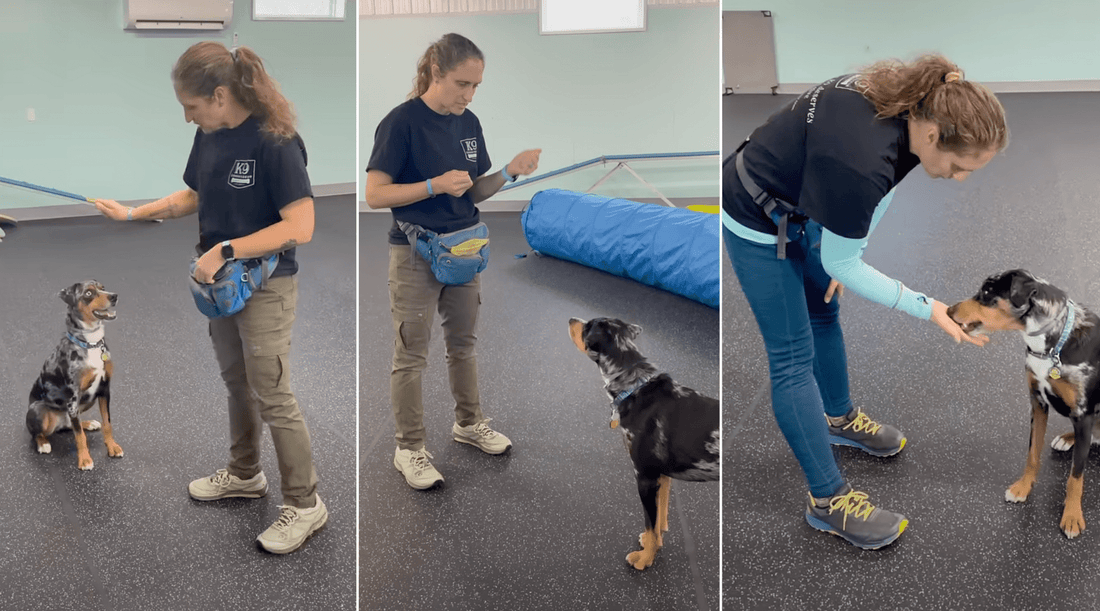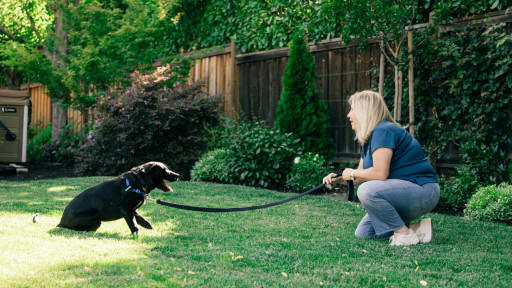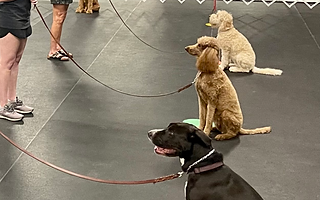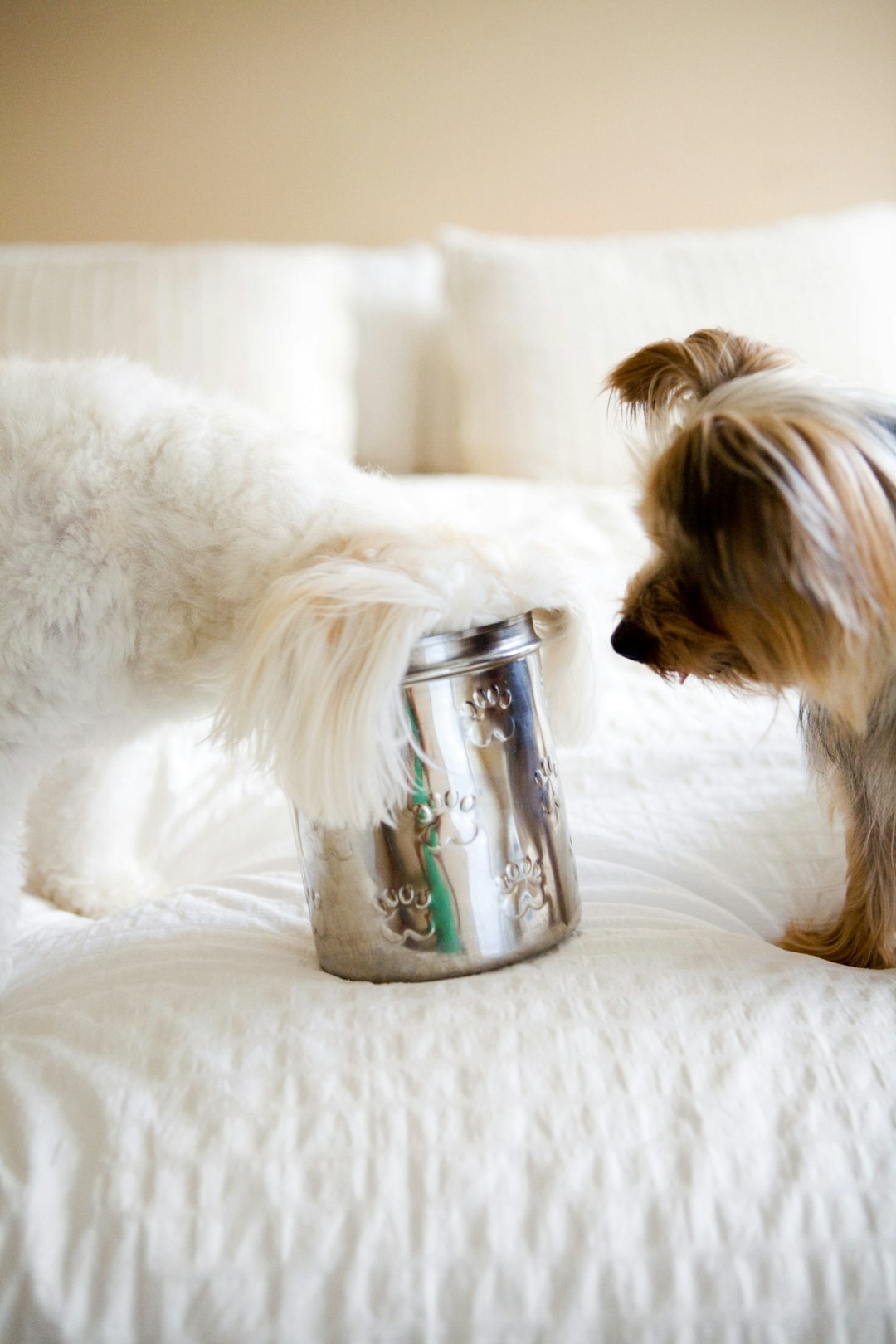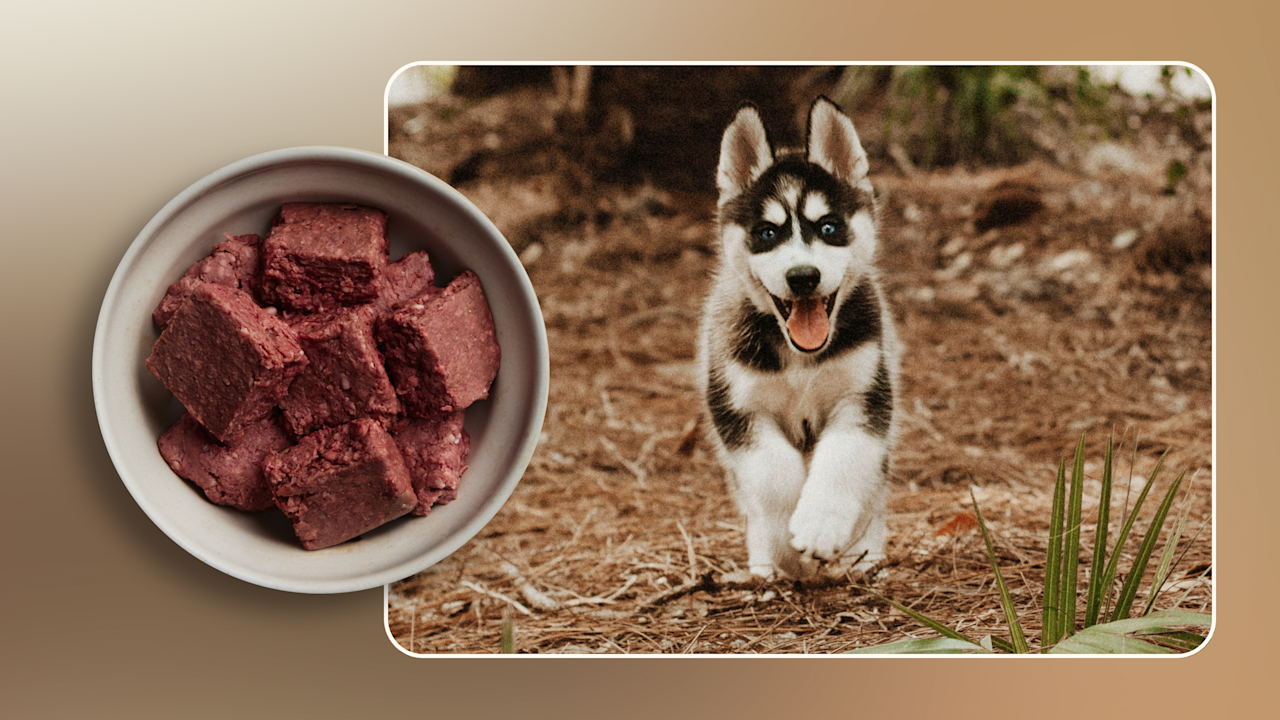If you have a Husky or are thinking about getting one, you probably wonder, “What type of food do Husky dogs eat?” Feeding your Husky the right food is key to keeping them happy, healthy, and full of energy.
But with so many options out there, it can be confusing to know what’s best. You’ll discover exactly what your Husky needs in their diet and how to make smart food choices that support their unique health and lifestyle. Keep reading to learn how to give your furry friend the nutrition they truly deserve.

Credit: huskygifts.com
Husky Dietary Needs
Huskies are energetic dogs with unique dietary requirements. Their diet must support their high activity levels and ensure they remain healthy and fit. A balanced diet for a husky includes a mix of proteins, fats, and carbohydrates. This blend helps maintain their energy and supports muscle development.
Macronutrient Breakdown
Protein is crucial for huskies. It supports muscle health and provides energy. Huskies thrive on animal-based proteins like chicken and fish. These sources are rich in essential amino acids. Fat is another important component. It offers concentrated energy that huskies need. Healthy fats like omega-3s are beneficial. They promote coat health and support brain function.
Carbohydrates are also vital. They provide quick energy for active huskies. Whole grains and vegetables are excellent sources. They offer sustained energy and fiber for digestion.
Essential Vitamins And Minerals
Vitamins and minerals are key for a husky’s well-being. Vitamin A supports vision and immune health. It’s found in carrots and sweet potatoes. Vitamin D is important for bone health. It can be sourced from fish and eggs.
Minerals like calcium and phosphorus are necessary. They support strong bones and teeth. Iron is crucial for oxygen transport in the blood. Sources include meats and spinach. A balanced intake of vitamins and minerals ensures a husky’s health.
Best Food Options For Huskies
Choosing the right food for your husky is key to keeping them energetic and healthy. Huskies have unique dietary needs due to their active nature and thick coats. You want to provide meals that fuel their muscles and maintain their shiny fur without causing digestion issues.
High-quality Commercial Dog Food
Look for commercial dog foods that list meat as the first ingredient. Avoid products with fillers like corn or soy, as huskies do better on protein-rich diets.
Brands that focus on grain-free or limited ingredient formulas often suit huskies well. They help prevent allergies and digestive upset.
Check for added omega fatty acids; these support coat health and reduce inflammation. Have you noticed how your husky’s coat changes with diet? That’s often a good clue about food quality.
Raw Diet Benefits
Feeding raw can mimic a husky’s ancestral diet, which some owners swear by. Fresh meats, bones, and organs provide natural nutrients.
Raw diets often improve energy levels and reduce stool volume. However, they require careful handling to avoid bacteria risks.
Think about whether you have time and resources to prepare raw meals safely. It’s not just about feeding but managing hygiene and balance.
Homemade Meal Ideas
Preparing meals at home lets you control every ingredient. Mix cooked lean meats like chicken or beef with vegetables such as carrots and green beans.
Add complex carbs like sweet potatoes for energy and fiber. Avoid onions, garlic, and excessive salt, which can harm huskies.
Have you tried using a slow cooker? It’s a great way to make nutritious meals without spending hours in the kitchen. Just remember to consult your vet to ensure your homemade recipes meet all your husky’s needs.
Foods To Avoid
Knowing what foods to avoid is just as important as knowing what to feed your husky. Some ingredients can harm their health or cause serious allergic reactions. Being aware of these dangers helps you keep your furry friend safe and happy.
Toxic Ingredients
Certain foods that are safe for humans can be deadly to huskies. Chocolate contains theobromine, which can cause vomiting, seizures, and even death. Grapes and raisins are another hidden hazard that may lead to kidney failure.
Onions and garlic can damage your husky’s red blood cells, leading to anemia. Xylitol, a sweetener found in sugar-free gum and candies, can cause a dangerous drop in blood sugar and liver failure. Always check ingredient labels carefully before sharing any treats.
Common Allergens
Just like people, huskies can have food allergies that trigger itching, digestive upset, or ear infections. Common allergens include beef, dairy, wheat, and soy. If your dog shows signs of discomfort after eating, consider testing or eliminating these foods from their diet.
Switching to limited ingredient diets or novel proteins like rabbit or duck can help identify and avoid allergens. Have you noticed your husky scratching more than usual or having unusual stools? These might be signs that it’s time to review their food choices.
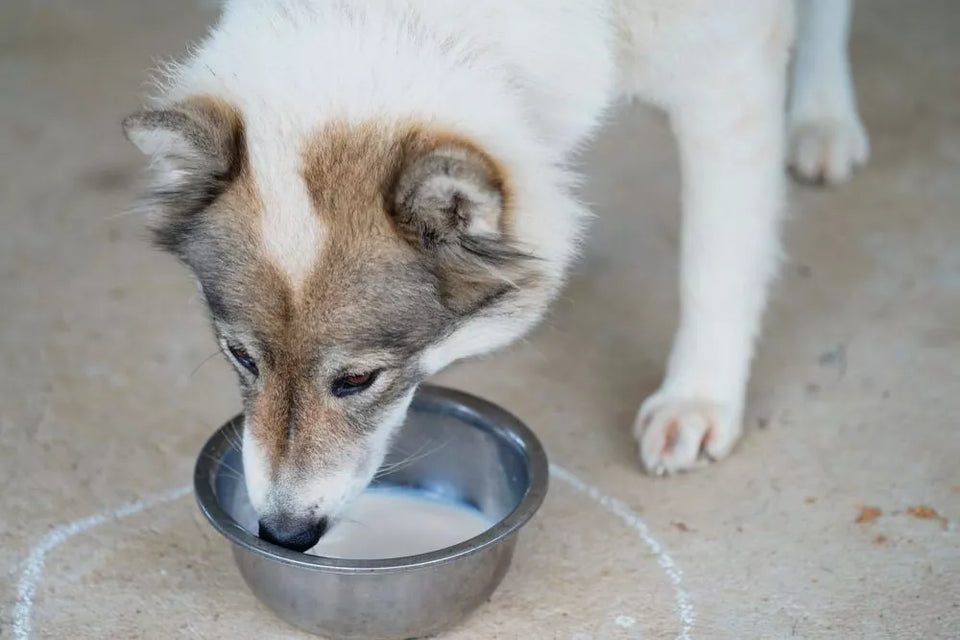
Credit: timberwolfpet.com
Feeding Schedule And Portions
Setting the right feeding schedule and portion size for your husky is key to keeping them healthy and energetic. Huskies have unique needs that change as they grow and as their activity level varies. Getting these details right can help you avoid overfeeding or underfeeding, both of which can impact your dog’s wellbeing.
Puppy Vs Adult Feeding
Puppy huskies need more frequent meals because they grow fast and burn lots of energy. Typically, you’ll feed a husky puppy 3 to 4 times a day to maintain steady energy levels and support development. Adult huskies, on the other hand, do well with 2 meals per day to keep their metabolism stable without overeating.
Think about how you’ve fed your puppy in the past—did you notice any changes in their energy after meals? Adjusting meal frequency based on your dog’s response can make a big difference. Puppies require nutrient-dense food in smaller, regular portions, while adults focus more on balanced meals suited to their activity.
Adjusting Portions For Activity Levels
Huskies are known for their high energy and love for exercise, so their food intake should reflect their activity. If your husky is very active—running, hiking, or playing for hours—you’ll want to increase their portions slightly to fuel that energy.
Less active days or recovery periods mean you should reduce the amount to avoid weight gain. You can start with the feeding guidelines on your dog food package, then tweak based on how your husky’s weight and energy level respond.
Here’s a simple way to monitor portions:
- Watch your husky’s ribs. They should be easy to feel but not visible.
- Notice their energy during walks or playtime; sluggishness might mean they need more food.
- Use a measuring cup for accuracy, not just eyeballing portions.
Have you ever changed your husky’s feeding amount after a busy day? That small tweak can help maintain their optimal health and happiness.
Hydration Tips For Huskies
Keeping your husky well hydrated is vital for its health and energy. Huskies are active dogs that need plenty of water to stay healthy. Proper hydration supports their digestion, skin, and overall body functions.
Here are some simple hydration tips to help your husky drink enough water daily.
Provide Fresh Water Constantly
Always keep a bowl of clean, fresh water available. Change the water at least twice a day. This encourages your husky to drink more often and prevents bacteria growth.
Use Multiple Water Bowls
Place water bowls in different areas of your home. Huskies may drink more if water is easy to find. This is especially helpful in larger homes or yards.
Offer Ice Cubes As Treats
Ice cubes can be a fun way to increase hydration. Many huskies enjoy chewing on ice, especially in warm weather. It also helps cool them down.
Include Moisture-rich Foods
Feed your husky wet or canned dog food occasionally. These foods contain more water than dry kibble. Adding fresh fruits or vegetables like cucumber can boost water intake.
Monitor Hydration During Exercise
Huskies are energetic and need water before and after playtime. Bring water on walks or hikes. Offer small sips regularly to prevent dehydration.
Supplements And Treats
Supplements and treats play a special role in a husky’s diet. They help fill nutritional gaps and offer rewards during training. Choosing the right supplements and treats supports your husky’s health and happiness.
When To Use Supplements
Supplements are useful when your husky needs extra nutrients. Puppies, pregnant dogs, or senior huskies may benefit most. They support joint health, coat condition, and immune function.
Always consult a vet before starting supplements. Too many vitamins can harm your dog. Common supplements include:
- Omega-3 fatty acids for a shiny coat
- Glucosamine for joint support
- Probiotics for digestion
- Multivitamins for overall health
Healthy Treat Options
Treats should be healthy and low in calories. Use them to reward good behavior without overfeeding. Natural treats like small pieces of cooked chicken or carrots work well.
Some good treat ideas for huskies are:
- Freeze-dried meat bites
- Carrot sticks
- Apple slices (no seeds)
- Plain rice cakes
- Commercial treats with simple ingredients
Avoid sugary or salty treats. Keep treats under 10% of daily calories. Healthy treats keep your husky fit and happy.
Signs Of Nutritional Deficiencies
Husky dogs need a balanced diet to stay healthy. Nutritional deficiencies can cause serious health issues. Recognizing the signs early helps prevent long-term problems. Watch your husky closely for changes in behavior or appearance.
Common Symptoms
- Dull or dry coat
- Slow healing of wounds
- Loss of appetite
- Weakness or low energy
- Excessive itching or skin problems
- Frequent diarrhea or vomiting
- Unusual weight loss or gain
- Swollen or painful joints
- Changes in teeth or gums
- Behavioral changes like irritability
When To Consult A Vet
Contact a vet if symptoms last more than a few days. Sudden changes in eating or energy need quick attention. Persistent skin issues or weight changes require professional advice. A vet can run tests to find the deficiency. Early treatment improves recovery chances. Do not delay if your husky looks unwell.
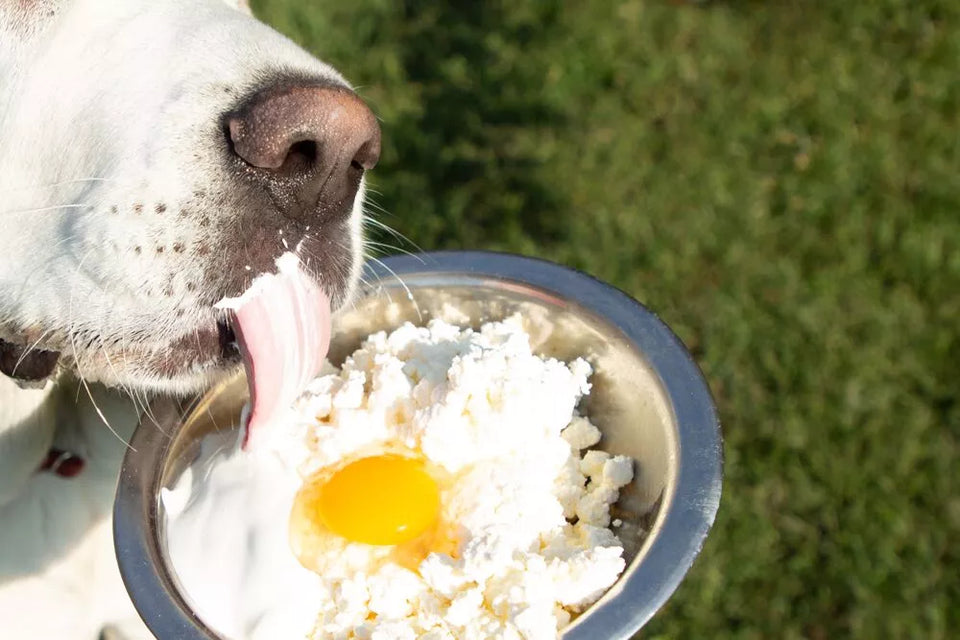
Credit: timberwolfpet.com
Frequently Asked Questions
What Is The Best Diet For A Husky Dog?
Huskies thrive on a balanced diet rich in protein and healthy fats. High-quality commercial dog food or raw diets work well. Avoid fillers like corn or wheat. Fresh meat, fish, vegetables, and grains support their energy needs and maintain coat health.
Can Huskies Eat Raw Food Safely?
Yes, huskies can eat raw food safely if prepared properly. Raw diets often include raw meat, bones, and vegetables. It promotes better digestion and coat condition. Always consult a vet to ensure balanced nutrition and to prevent bacterial contamination.
How Often Should I Feed My Husky Daily?
Feed adult huskies twice daily—morning and evening. Puppies require three to four meals a day. Regular feeding times help maintain energy and prevent overeating. Adjust portions based on age, activity level, and health conditions.
Are Huskies Lactose Intolerant?
Most huskies are lactose intolerant and should avoid dairy products. Milk and cheese can cause digestive upset like diarrhea or gas. Small amounts of yogurt or cheese might be tolerated, but it’s safer to limit dairy to prevent discomfort.
Conclusion
Husky dogs need food that gives them energy and keeps them strong. They do well with high-quality meat and some vegetables. Avoid giving them too many treats or unhealthy snacks. Clean water is very important every day. Feeding your husky the right food helps them stay happy and healthy.
Remember, each dog is different, so watch how your husky reacts to their meals. Good food means a good life for your husky friend. Simple care makes a big difference.

